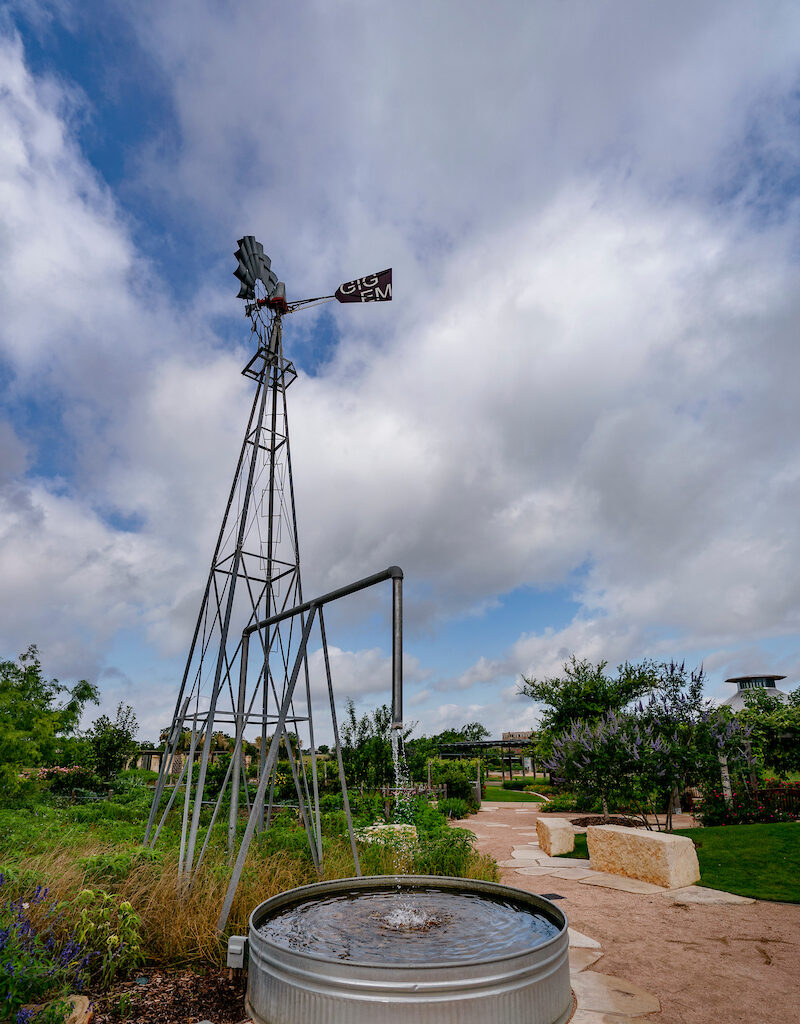Rainwater Harvesting
- Type
- Program

Overview
This program educates the public about rainwater harvesting and other water-related issues so that we can have a sustainable water supply for generations to come.
Contact
Fouad Jaber, Ph.D., P.E.
Professor and Extension Specialist
Biological and Agricultural Engineering Dept.
Texas A&M AgriLife
17360 Coit Road
Dallas, TX 75252
This program educates the public about rainwater harvesting and other water-related issues so that we can have a sustainable water supply for generations to come. This website is full of information about rainwater harvesting basics (including videos), upcoming events and programs, and locations where you can see a rainwater harvesting demonstration site in person. The group of Extension Personnel are only part of the rainwater harvesting educational effort. There are several personnel who help to make effective programming happen successfully in both the A&M System and beyond.
The rainwater harvesting group is an interdisciplinary group of educators and researchers within the Texas A&M System. We aim to educate Texans about rainwater harvesting as an alternate and/or supplemental source of water so that they can have a sustainable source of water for years to come. We also educate about rainwater harvesting as means to control stormwater runoff, which helps to reduce pollution in our rivers and streams. In person agent led programs are available.
More choices in Environment & Natural Resources
- Course
Our self-paced online course covers the basics of soil physical properties and how they affect soil health. It also covers the impact this has on water retention and plant health. Our course welcomes everyone, from beginners to skilled growers and agronomists. Enroll now and dig deeper into soil health!
- Course
Explore the building blocks of healthy soil with this course bundle. Featuring the complete series of our self-paced courses—including our Introduction to Soil Health, the full Soil Properties series, and an interactive workbook. This learning experience is perfect for growers, gardeners, and curious learners alike. Enroll now and start your soil health journey!
- Course
Learn how green infrastructure can help manage stormwater, reduce flood damage, and increase property value. This course explores practical, nature-based ways to improve stormwater systems in cities, rural, and coastal areas. Enroll now and build resilient, ecofriendly communities!
- Course
Learn forest basics in 2 hours! This first-of-its-kind, self-paced online course provides a clear and engaging introduction to forest ecosystems, their management, and conservation. Understand the big picture—and why it matters. Enroll today!
- Course
Our self-paced online course covers the basics of soil chemistry properties and how they affect soil health. It also covers the impact they have on fertility and plant health. Our course welcomes everyone, from beginners to skilled growers and agronomists. Enroll now and dig deeper into soil health!
- Course
Our self-paced online course covers the basics of soil biological properties and how they affect plant and environmental health. It also covers practical ways to improve the productivity and sustainability of your soil. Our course welcomes everyone, from beginners to skilled growers and agronomists. Enroll now and dig deeper into soil health!.
